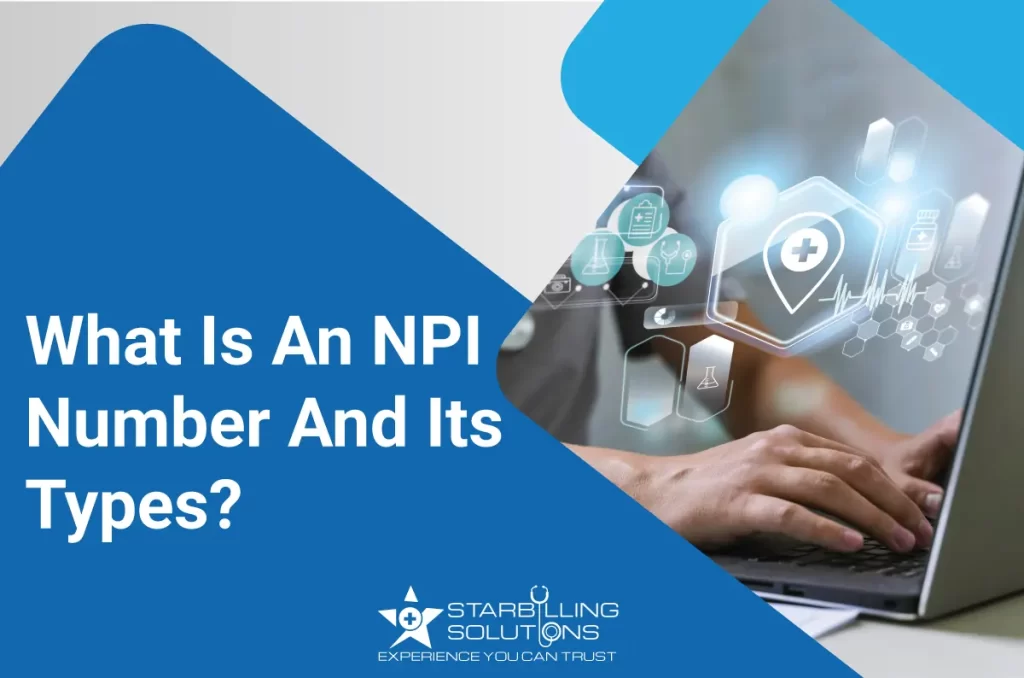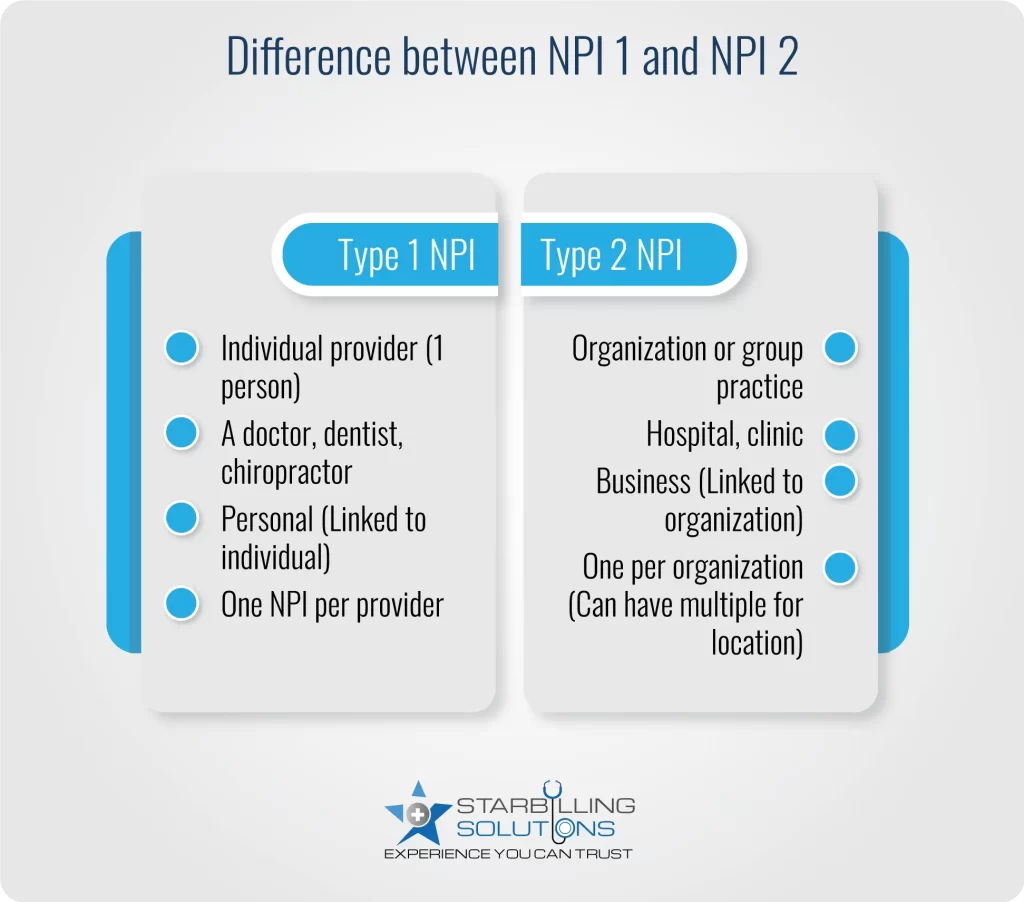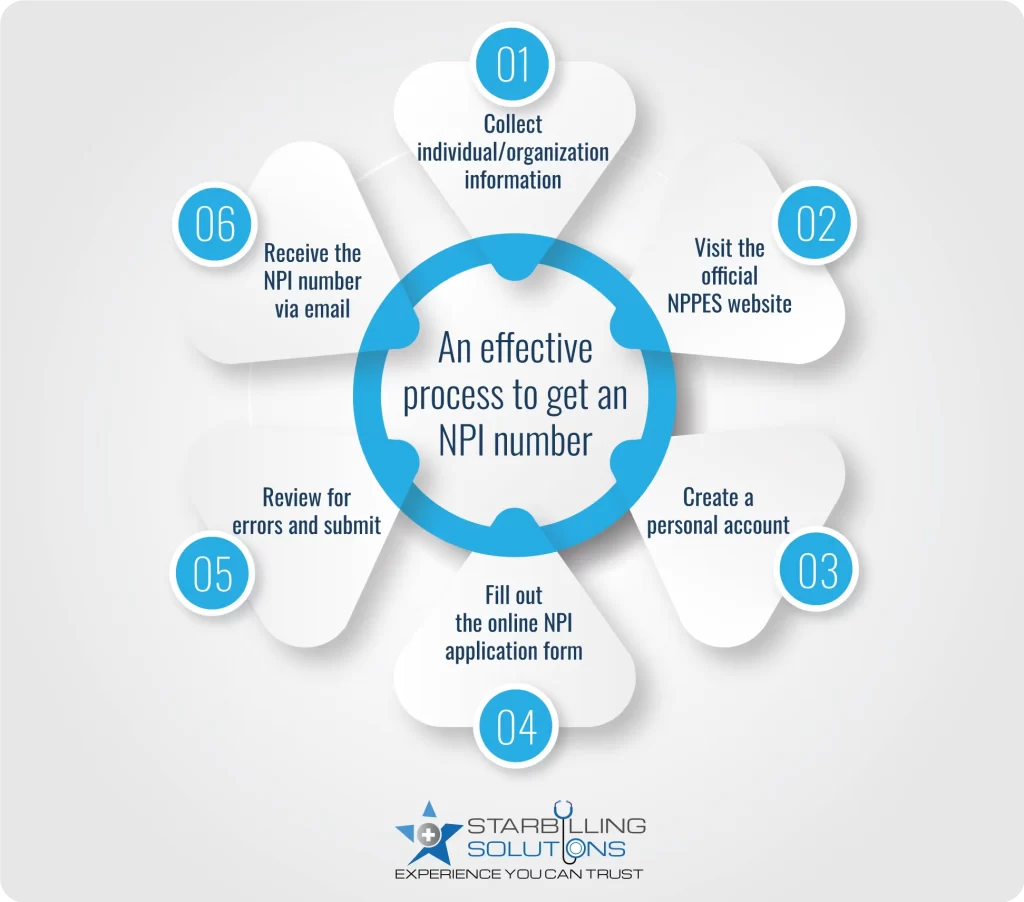
An NPI in healthcare (National Provider Identifier) is a unique 10-digit identification number assigned to each individual practitioner and group practice in the US. The NPI number formatis all numeric, where the first 9 positions are the identifier and the last position is a check digit that detects invalid NPIs.Centers for Medicare and Medicaid Services (CMS) are responsible for assigning these numbers.
Any healthcare provider, clearinghouse, or organization that conducts transactions or uses electronic records that fall under HIPAA is required to obtain an NPI number. These numbers serve to send claims and receive payment from Medicare, Medicaid, and private health insurers. Additionally, knowing what is an NPI number is also crucial for streamlining billing, tracking services, and preventing fraud.
The National Provider Identifier (NPI) system was officially started being developed by the CMS in 1993 under the Health Insurance Portability and Accountability Act (HIPAA). Lately, Enumeration (the process of assigning NPIs) started on May 23, 2005.
While the compliance means healthcare providers and health plans were required to use NPIs by May 23, 2007. This NPI in healthcare replaced the older provider identification system to simplify electronic health transactions and make billing and record-keeping easier than ever.
NPI in medical billing is important for every healthcare practitioner because this mandated HIPAA standard provides a simplified billing to all associated entities. There are further reasons discussed below that show the NPI’s importance in healthcare.

NPI numbers provide a single unique identifier for every healthcare provider across all states, payers, and programs. This means the provider’s recognition becomes easier nationwide, which reduces fraud and streamlines the billing process.
NPI in medical billing ensures that the provider is clearly identified on the claim sheet. This makes it easy for payers to verify providers’ eligibility and authentication for services and specialties, resulting in reduced claim denials, faster approvals, and higher healthcare reimbursement.
If a provider dreams of getting in network with the payer, they must have an NPI credentialed with the insurance company. Doing so makes it easier for the provider to obtain insurance reimbursement, which also improves the patient’s satisfaction.
NPI in healthcare is necessary to link the provider’s information with the electronic health record (EHR) system, promoting better communication and record-keeping.
Every healthcare provider and organization that bills for services or transmits health information electronically is required to have either a sole proprietor NPI or a group NPI. These entities include:
Physicians, nurse practitioners, chiropractors,dentists, physical therapists, psychologists, and other licensed doctors who operate independently.
Hospitals, clinics, nursing homes, home health agencies, residential treatment centers, laboratories, pharmacies, and other group practices that need an NPI in healthcare billing and administrative tasks.
Organizations or individuals that offer supplemental health care services, like a durable medical equipment supplier, ambulance service, speech language pathologist, and occupational therapy. These entities also require NPI numbers.
Here, individual practitioners apply for type 1, while group practices are required to register for npi number type 2 to proceed with a seamless billing process.
There are two main types of NPI: individual and organizational NPI. However, understanding NPI type 1 vs type 2 is important for providers to prevent denials during the billing process.

This NPI type is designed specifically for individual healthcare providers, such as doctors, practice nurses, physical therapists, or dentists, who deliver services directly to patients. Even if a doctor operates as a solo practice, they will need a Type1NPI to be reimbursed successfully for insurance claims and improve their healthcare revenue cycle.
This type of group npi is issued to organizations that have more than one practitioner working, such as hospitals and clinics. If you have multiple providers working under one business entity, apply for npi number under type 2.
Before getting deeper into how the NPI process works, understand some common NPI examples for different types of healthcare providers and organizations.
| Individual Practitioner Example: | Healthcare Organization Example: | Ancillary Service Provider Example: | |
| Name: | Dr. Sarah Ed, MD | Sunrise Health Clinic | QuickCare Home Health Services |
| NPI number: | 1234556678 | 1987654321 | 1357924680 |
| NPI type: | Type 1 | Type 2 | Type 2 |
| Speciality: | Physiotherapy | Family Practice Clinic | Home Health Agency |
| Practice location: | Chicago, IL | Dallas, TX | Orlando, FL |
To register for NPI number, ensure your application includes the essential information mentioned below. If you are missing or falsely quoting this piece of information, the application may be rejected.
There are three common ways through which you could submit an npi number application: Either apply for npi number through NPPES, submit a paper application, or be enumerated through an Electronic File Interchange (EFI).

The fastest and reliable way to apply for an NPI number is directly through the official website, National Plan and Provider Enumeration System (NPPES). All you need to do is create an account, fill out the form, and submit it. You will then receive your NPI number via email within a few days.
If you prefer a physical NPI number application, request a paper NPI form (CMS-10114) and submit the completed, signed application via mail to the NPI Enumerator. Getting a response through this method takes longer, but it’s an effective way for those who are more comfortable with paperwork.
Larger organizations or healthcare practices can submit multiple NPI applications at once through an Electronic File Interchange (EFI). This method is ideal for facilities enrolling many providers at the same time.
The NPI registry is a free and public online data scraping tool available at npiregistry.cms.hhs.gov. It allows users to perform an NPI look up for individual providers and organizations. Using this tool, everyone can search for healthcare provider and organization information using their NPI details. It helps in a variety of ways, including.
An effective NPI look up using the registry could ease insurance credentialing and enrollment, verify providers’ information, and confirm accurate claims information.
Knowing what is an NPI number is crucial in healthcare as it helps providers streamline billing and administrative tasks and ensure compliance. Any individual practitioner or group practice unsure about applying or managing NPIs can consult with our expert medical billing solutions. Here’s why
With our expert teams, we allow practices to focus on patient health while we handle billing under the correct type of NPI.
NPPES provides your NPI via email after your application is approved.
If applied through the NPPES official website, you may receive an NPI number approvalwithin 10 business days. However, if it is applied through a paper application form at www.cms.hhs.gov/NationalProvIdentStand, approval may take more than 10 days.
Most healthcare providers must have a valid license to obtain an NPI, but there are some exceptions. For instance, non-licensed healthcare providers, students and residents, alternative medicine practitioners, and volunteer healthcare workers can apply for an NPI without a license.
On the NPPES website, use the NPI registry, which allows you to filter by state, city, or ZIP code to locate providers.
Not all nurses require an NPI number, except those who are in advanced practice or who bill for services, do need one.
In the provider section of CMS-1500, usually Box 33a, which presents the NPI number to identify the rendering or billing provider.
NO NPI number doesn’t expire as it remains the same regardless of whether you change the job, practice location, or any other career-related shifts.
An individual healthcare provider or doctor who operates their own solo practice has one NPI number. However, organizations, such as hospitals, physician groups, or corporations, can have multiple NPIs.